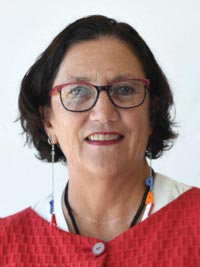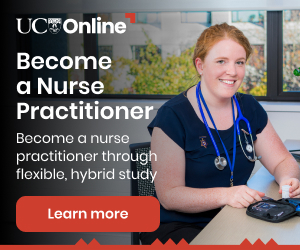
According to a service manager at Māori public health Hāpai Te Hauora, Fay Selby-Law, nurses have a “huge” role in preventing sudden unexplained death in infancy (SUDI). But listening was more important than delivering a message.
“It’s more about listening than telling, to get alongside whānau, and nurses are well-placed to do that,” said Selby-Law, who coordinates Te Hāpai Hauora’s national SUDI prevention service.
The service offered wahakura – woven flax bassinets – to whānau for safer co-sleeping, as well as a whare where mothers could talk and even make their own wahakura.
The service also worked to encourage breastfeeding, immunisation, gentle handling of pepe, as well addressing smoking and bed-sharing – the two biggest risk factors for SUDI, Selby-Law said.
It was important for health workers to listen to whānau about their goals. “I hope you as nurses continue to grow and learn, that you are happy to share our message and that you are there for our people.”
Chief executive of Te Tihi o Ruahine (an alliance of central Māori health providers) Materoa Mar also emphasised the importance of working alongside whānau, rather than “imposing” ideas.
“Communities have their own dreams and aspirations for what they want to achieve over time,” Mar said. While agencies often had good ideas, they generally were developed away from the communities where whānau lived. It was “crucial” to engage with those living in the communities, “who obviously have the best insight” into finding solutions and identifying aspirations.
Any approach should be “walking alongside, seeking knowledge and contributing to what already exists, as opposed to imposing what our idea might be”.
There were also great opportunities to honour te Tiriti in such collaborations, she said. “This is the opportunity to set our sails, to look where we are heading, far to the horizons, to be bold and courageous and undertake the change required.”
Kuini Daniels of the Ngāti Hine Health Trust’s Paparata Outreach, a mobile clinic in Te Tai Tokerau with a kaupapa Māori approach, said the service aimed to break barriers for “high-risk” whānau, by bringing resources to them. The service involved nurses, doctors and dietitians, as well as rongoā medicine practitioners, which could be “very meaningful” for many Māori.
Closing inequity gaps
“COVID-19 opened our eyes to the impact on people with long-term conditions” and Ngāti Hine wanted to focus on closing the inequity gaps for Māori.
The whānau ora approach used innovative and collective means, including social and mental health services in response to high suicide rates. Trialling new initiatives such as shared medical appointments and free prescriptions were two examples of successful projects Daniels would like to see extended.
She also hoped to see more resources for outreach clinics, including podiatry and mental health training, more staff and upskilling of nurses to become nurse practitioners.



